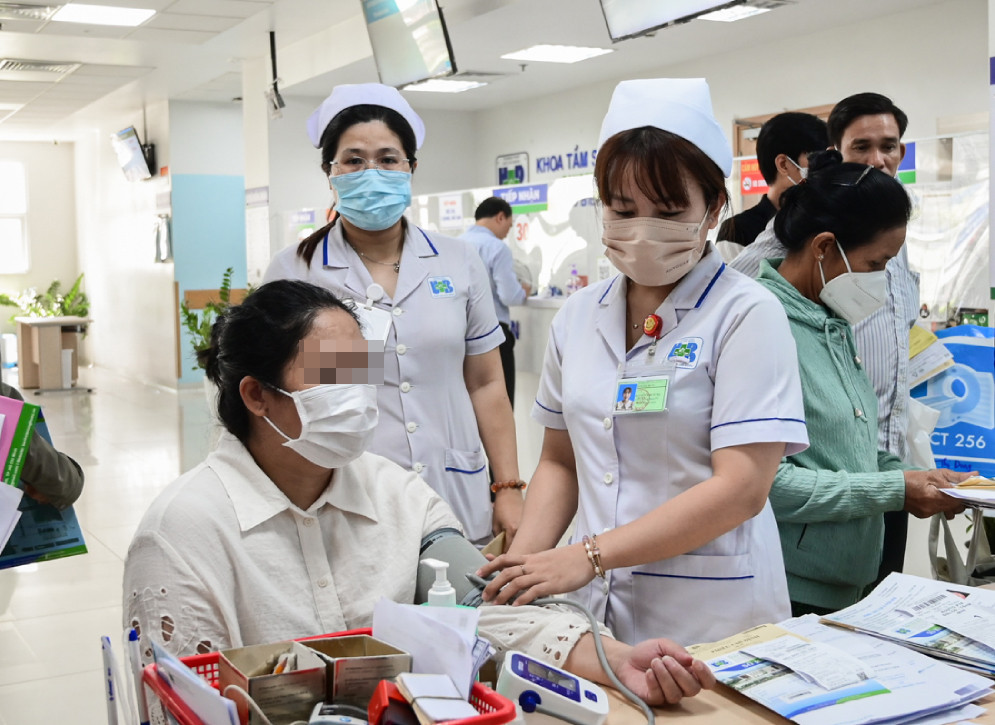Southeast Asia is rapidly emerging as a global hub for clinical trials, yet Vietnam continues to face significant challenges in catching up with this trend. These concerns were raised by experts during a roundtable discussion on "Promoting innovation in Vietnam through clinical trials."
The value of clinical trials
Dr. Phan Tan Thuan, Head of the Clinical Trial Unit at Ho Chi Minh City Oncology Hospital, shared that the hospital is currently involved in 37 international clinical trials, mainly phase 3 studies.
These trials have allowed hundreds of patients access to next-generation drugs, which are not yet available in Vietnam and can cost up to 12,000 USD per treatment cycle (3–4 weeks).
Dr. Le Thanh Nhan, Head of the Scientific Research Unit at Children's Hospital 1 in Ho Chi Minh City, noted that five clinical studies are currently underway at the hospital in collaboration with international organizations.
According to Professor Guy Thwaites, Director of the Oxford University Clinical Research Unit in Vietnam, clinical trials offer enormous benefits. In his report “The future roadmap of clinical trials in Vietnam,” he explained that patients gain access to advanced treatments that can be lifesaving and financially beneficial.
Regulatory agencies can use these trials to build a robust clinical trial ecosystem, improve public health, and support effective healthcare policy development. The pharmaceutical industry benefits through high-quality workforce development, innovation promotion, and attraction of foreign investment.
Declining momentum and main barriers

Despite these benefits, from 2018 to 2023, Vietnam’s clinical trial sector saw a decline, with only 40 trials conducted and a compound annual growth rate of -3.4%. Most trials focused on cancer and infectious diseases such as COVID-19, tuberculosis, hepatitis, dengue, and drug-resistant infections, as well as cardiovascular diseases.
Professor Thwaites identified several barriers hindering Vietnam’s progress:
Lengthy approval process: Clinical trials in Vietnam take around 160 days to obtain ethical and regulatory approval, more than twice the international average of 75 days. In comparison, the process takes 18 days in Singapore, 20 days in Indonesia, and 31 days in Japan.
This delay is attributed to the dual review system by both central and local ethics committees, complex administrative procedures, limited infrastructure, and workforce shortages.
Import restrictions for investigational medicinal products (IMPs): Ambiguities around import regulations for testing kits and related devices make it difficult for sponsors. Discrepancies in document requirements across regulatory bodies result in inconsistency and unpredictability.
Lack of incentive policies: Vietnam offers fewer incentives than regional peers, making it less attractive to multinational pharmaceutical companies.
Limited clinical trial expertise: Many healthcare professionals, especially young doctors and nurses, lack training and familiarity with clinical trial procedures.
Low participation rate: Only 1–2% of eligible patients participate in trials. Public hesitation, limited access to information, high dropout rates, and associated costs lead to extended timelines and increased expenses.
Rising health burden demands urgent action
Meanwhile, Vietnam's disease burden is mounting. Annual deaths are projected to rise from 522,800 in 2024 to 563,400 by 2027. Non-communicable diseases such as cardiovascular conditions, lung cancer, and chronic respiratory diseases account for around 70% of total deaths. These statistics present a pressing need - and opportunity - for expanding specialized clinical trials.
Professor Thwaites emphasized that Vietnam must urgently streamline legal procedures, upgrade infrastructure, train clinical trial professionals, and enhance incentive policies to keep pace with global trends.
Experts suggest that if Vietnam successfully implements these reforms, it could conduct up to 86 clinical trials, generating thousands of high-quality jobs, enhancing the country’s reputation in medical research, and giving patients earlier access to advanced treatments.
Phuong Thuy